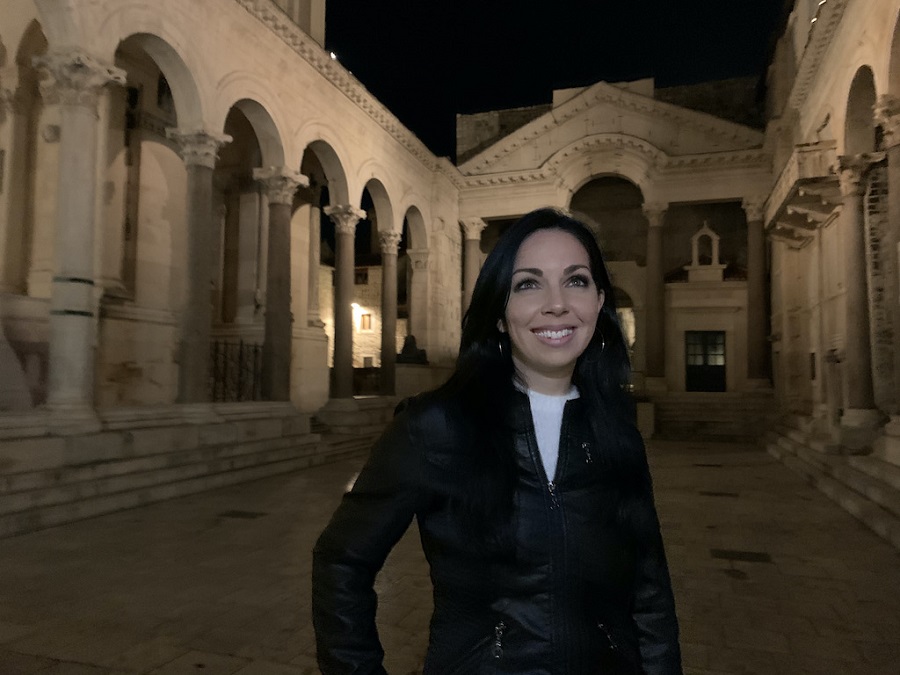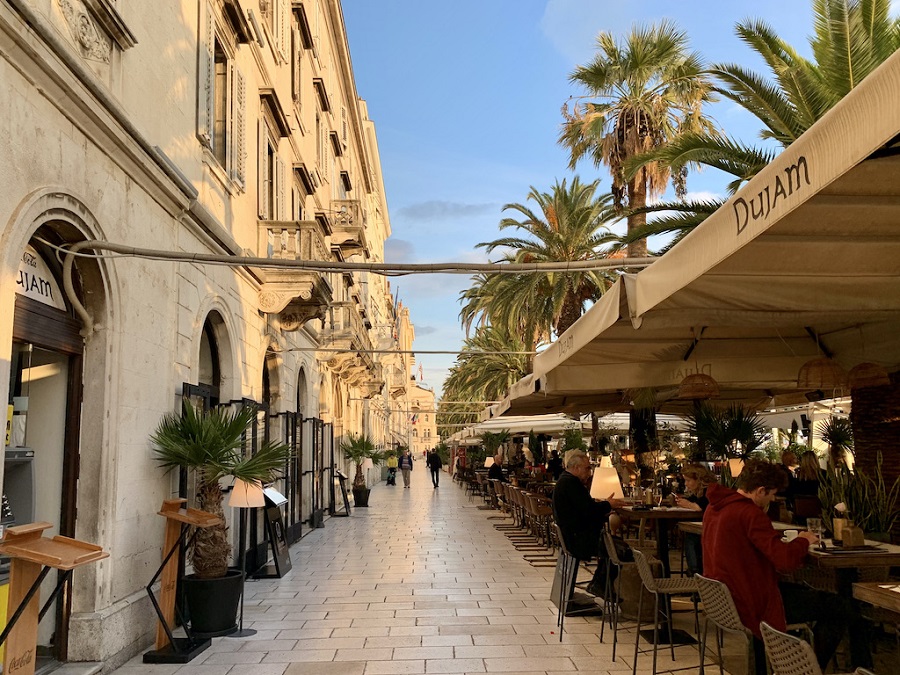February 1, 2021 - As the number of digital nomads rises globally, some are choosing to spend some of their time in Croatia. Continuing our TCN series meeting international digital nomads calling Croatia their temporary home. Meet Ian and Amy Anderson, from Florida to Split.
Searching for a coastal European town with all the amenities of modern-day living, this digital nomad couple from Tampa, Florida found the perfect place to work. This AirBNB had everything that they were looking for and best of all, it was located in an ancient Croatian palace. Take a peek into their digital nomad lifestyle and learn some tips on how you can become one too. Say hello to Ian & Amy Anderson.
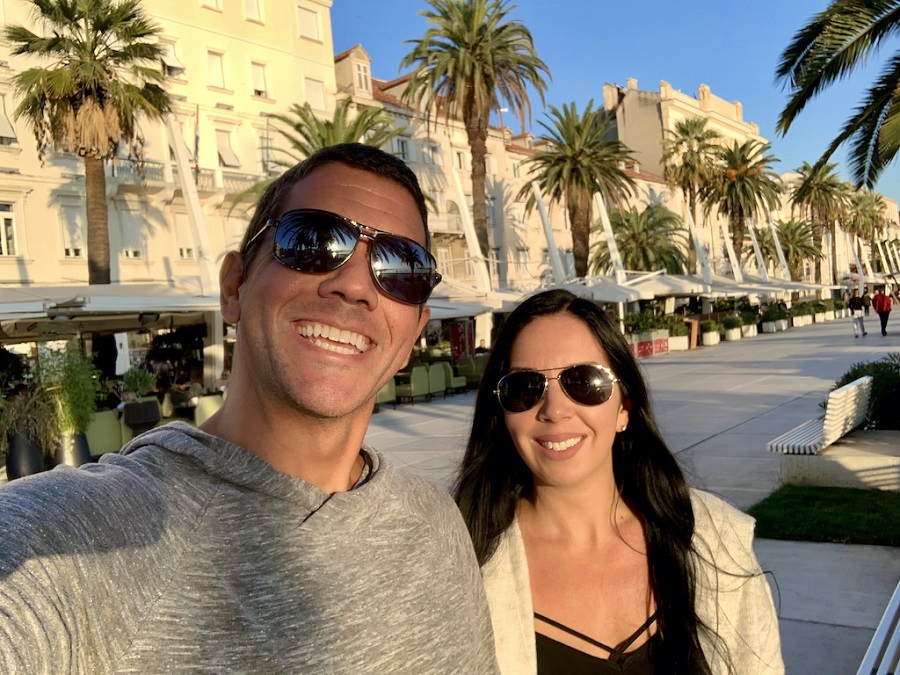
Tell us a bit about you and your work.
We both grew up in Massachusetts (USA) about one hour south of Boston in a city called New Bedford. Like most people, our twenties were filled with jobs we hated. But one good thing was that we both happened to be working at one of those awful jobs at the same time. We started dating in 2001 and by 2009 we had gotten married.
At that point in time we couldn’t take working jobs that we hated anymore and we finally got the courage to venture out into the world of self-employment and started our own web design company. It was one of the scariest things we had ever done, but it turned out to be one of the best decisions that we ever made.
Eleven years later, we’ve created a thriving web design company that creates websites for small to medium-sized businesses in the USA. The best part is that we get to do it together, from anywhere in the world. We are really lucky because we don't just love each other, we actually like each other too.
Pros and cons of working remotely?
One of the biggest pros of working remotely is the freedom and flexibility that this lifestyle offers. Like any other job, some days can be stressful and make you want to pull your hair out, but the good days far outnumber the bad. At the end of the day, our clients don’t care how we get the project done, they only care that we complete the project on time and deliver a high-quality end result. This means we don’t have to work a set “9-5” schedule.
Because (for the most part) we are able to choose our own schedule, we don’t have to wake up to an alarm clock. Working remotely also means that we don’t have to drive to an office every day, which saves both time and money. We don’t have to sit in a cubicle for eight hours a day and we have zero office drama.
Working remotely not only allows you to work from the comfort of your own home but also from anywhere in the world... such as Croatia! Once you experience this lifestyle, your days will stop being black and white copies of the day before and they will come alive with bursts of color. Your life will finally have some flavor. If you choose to add the traveling aspect to working remotely, you’ll get to see gorgeous places, have conversations with people from other cultures and eat interesting food in faraway places. You’ll become the exotic “International Traveler” in your family!
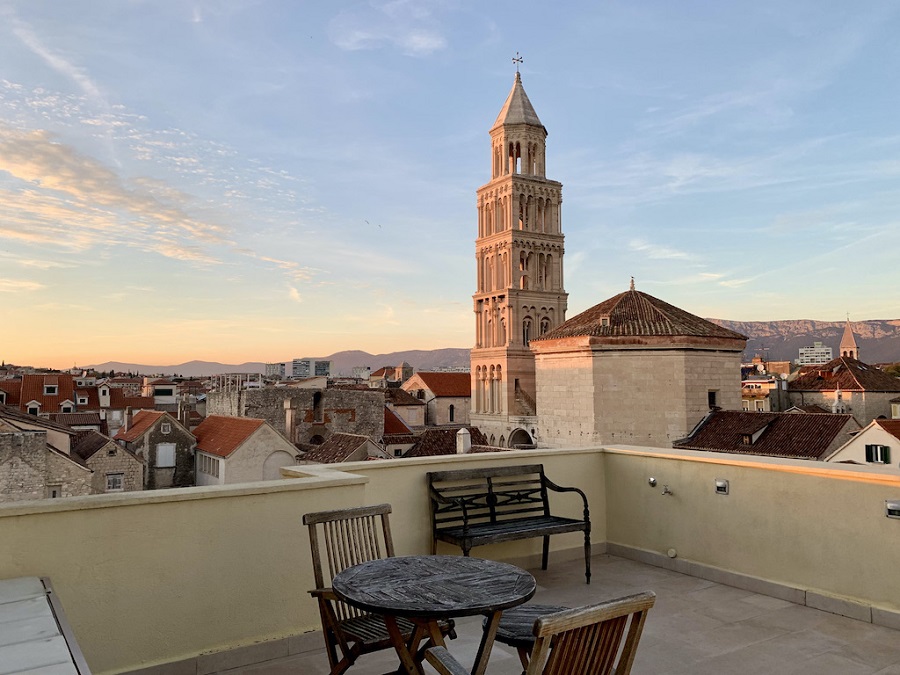
Now onto the not-so-good things.
Remember being a kid on Christmas morning? You would jump out of bed, run to the brightly colored tree in the living room, grab the biggest present you can find and yell out “Mom, can I open my presents now? Pleeeeeeeese?”
But it wasn’t time to open presents just yet and you were told to wait.
Devastated, you rolled your eyes and let out a “uuugggggghhhhhh!” as you sulked your way into the kitchen to get some cereal.
As digital nomads we feel like this on most days.
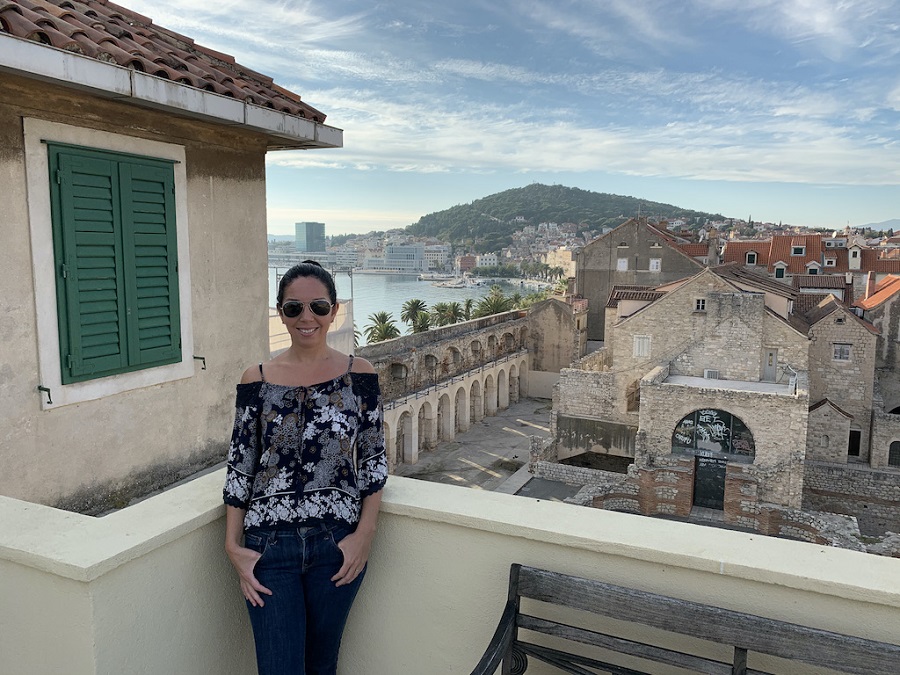
We know that there is an amazing city just outside these AirBNB walls but we also know that we can only go out and explore it once we get all our work done. We can’t let our business suffer because we want to go outside and play. It’s like being a kid who is told to wait to open their presents, except now the presents are new cities waiting to be unwrapped. And our work is like a strict mother telling us that we have to wait to open it.
Another downside is that we also miss our family and friends. When you are a “digital nomad” you miss out on things like family dinners, holiday gatherings and birthday parties. Sure, you can make FaceTime appearances for a few minutes at each event but it’s not the same as actually being there.
Like anything else in your life, you have to make sacrifices in order to get the things you really want.
You can’t fly a plane while keeping one foot on the ground.
How did you choose Croatia and specifically Split?
From August to November 2020 we were “digital nomading” in the Caribbean, enjoying the endless sunshine and sandy beaches of Aruba. But you can only stay in Aruba for 90 days as a tourist and that window was soon closing for us. We needed a new country to visit but as US Citizens traveling during a global pandemic, our options were limited.
While researching which countries US Citizens could travel to, we found an article in Forbes magazine that featured Croatia. It sounded like an interesting country, so we looked more into the top travel destinations within Croatia.
One of the locations that immediately caught our attention was Split.
It seemed to have an old-world charm perfectly blended with modern-day amenities. We watched YouTube videos that explored the labyrinth-like alleys of Diocletian's Palace, the smooth cobblestone streets filled with lots of artisanal shops and the many cafes and restaurants located along the waterfront. It seemed to have just about anything that we would want or need (all within walking distance) plus gorgeous palm trees right along the Adriatic Sea.
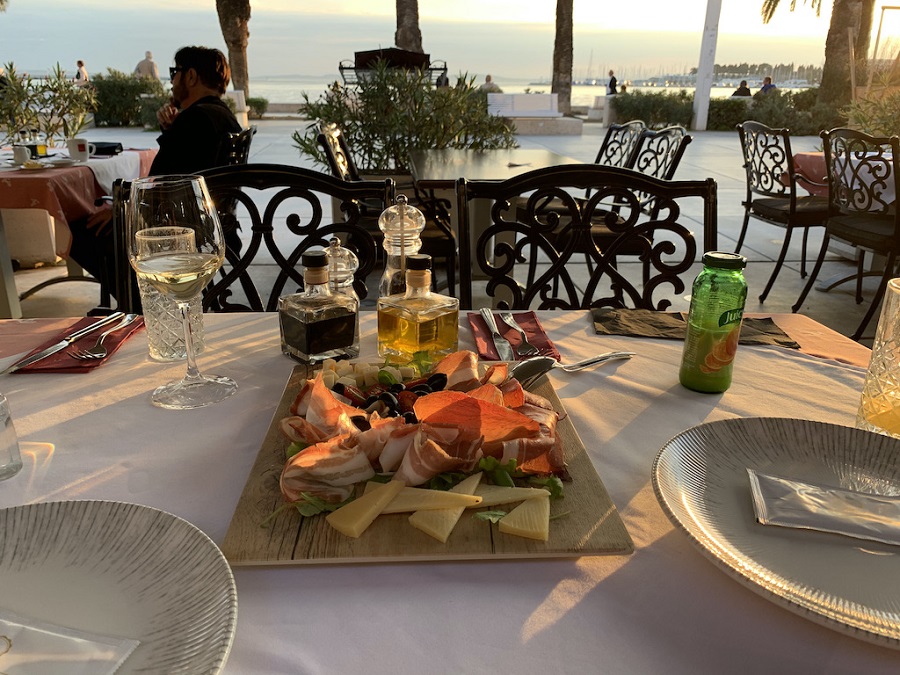
Once we arrived in Split and saw the majestic views, it was love at first sight.
It was even better than what we saw in the YouTube videos! We were also pleasantly surprised that overall Split was reasonably priced and best of all very safe!
Another great thing about Split is Marjan Park. Just to the west of the palace walls there is a large elevated area of trees. If you walk up the southern side pathway and you turn around, you’ll see something you’ll never forget.
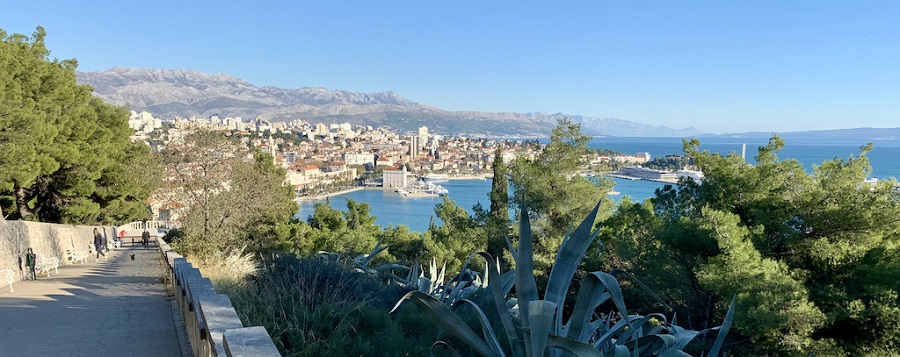
In one breathtaking glance, you’ll see all of the ancient architecture with the cream colored walls and orange roofs, the perfect blue sea and sailboats, the inspiring green trees and the faded mountains far off in the distance.
It’s one of the most spectacular views we have ever seen.
What’s important for a destination to offer to be compatible with a digital nomad lifestyle, apart from good WiFi?
While everyone has a different opinion of what is important for a destination to offer, everyone can agree that safety is very important. When traveling to a new place somewhere in your home country or a new country abroad, it’s comforting to know that you can walk around (even after the sun sets) and have peace of mind that you are safe. And that’s one of the many things that we love about Split. It is very safe at all times. We would often venture out for a late-night stroll down the Promenade or through Diocletian's Palace and we always felt safe.
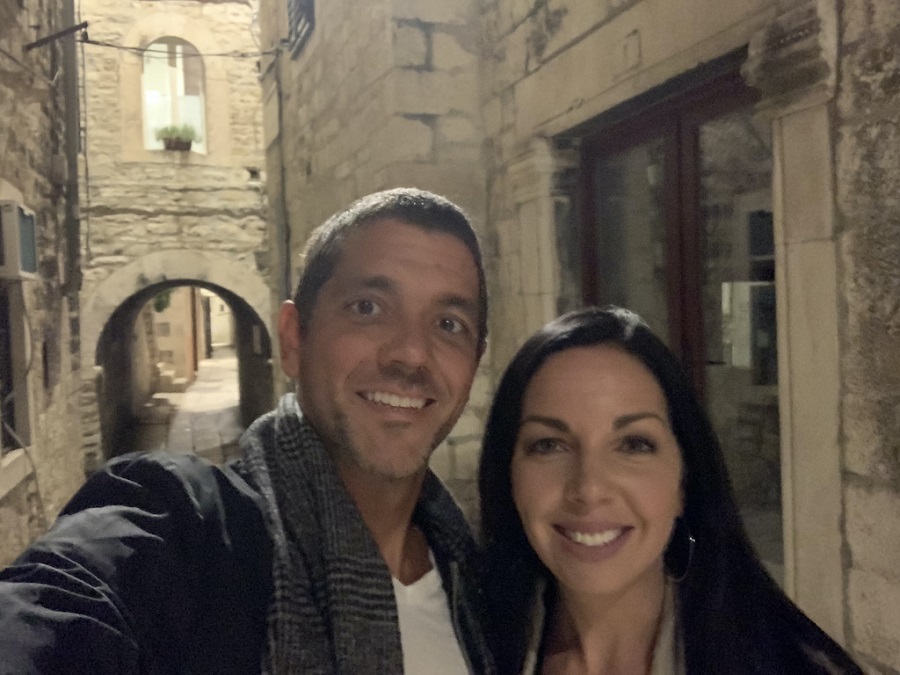
After safety, the location of where you’re staying is the next most important thing to consider. For us that means close proximity to things like beaches, restaurants and historical landmarks, as well as essential services like grocery stores and pharmacies. The closer we are to those things, the less likely it is that we’ll need to rent a car, which saves us from an unnecessary expense. Another great thing about Split is that even when we wanted to venture out farther than we could walk, Uber is available in the area and there are also bikes and scooters available to rent.
While it’s not a deal-breaker for us if a destination doesn’t offer food and grocery delivery, if they do it’s definitely a bonus. After all, us digital nomads still have a business to run which sometimes means long workdays and not having time to run out to the grocery store. So a grocery delivery service can come in handy… and yes, there are companies in Split that offer this service, which made things very convenient on days we weren’t able to venture out.
What’s your view on the future of remote work?
When COVID-19 first disrupted our species, businesses around the world were forced to make their employees work from home. At first this was a chaotic change but after a few months companies realized that their employees were still able to get the work done remotely. They also noticed employees seemed happier as a result of not having to commute every day and no rush hour traffic!
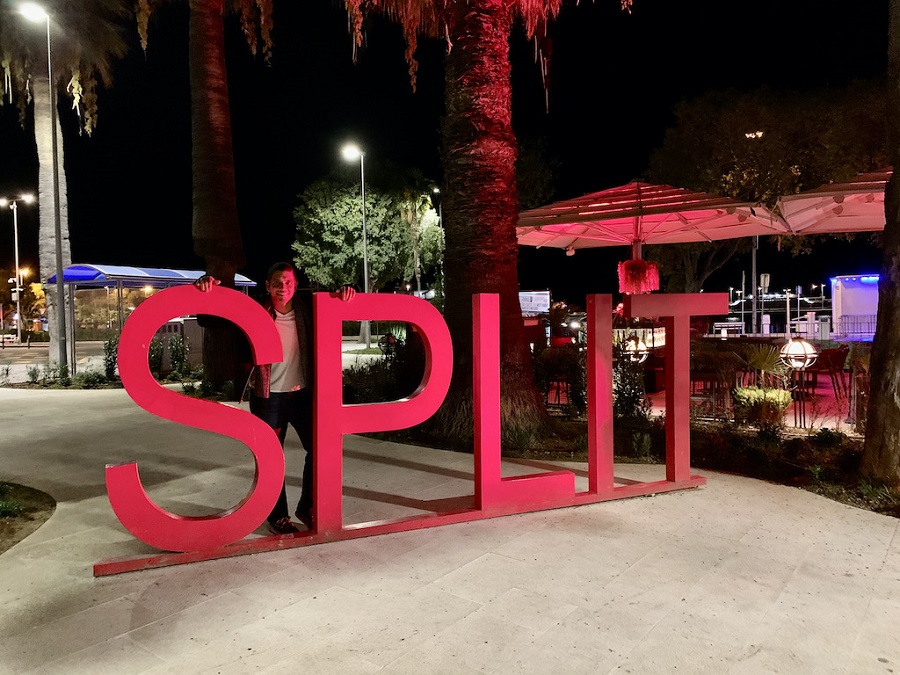
COVID-19 has caused many companies to re-examine their business model. They are starting to see remote work as a way to not only have happier employees but also lower their overhead costs, creating a win-win for business owners. Happier employees tend to be more productive with their work and are also more likely to continue to work for a company. And the more employees that a company is able to have work remotely, the more likely it is that they can downsize their office space and in some cases completely eliminate it, which will greatly reduce their expenses.
So we think that as time goes on the ability for people to work remotely is only going to grow, making it an ideal time for anyone who is looking to travel to become a digital nomad.
Do you have any advice for people looking to make the transition to digital nomad life?
Lower Your Expenses
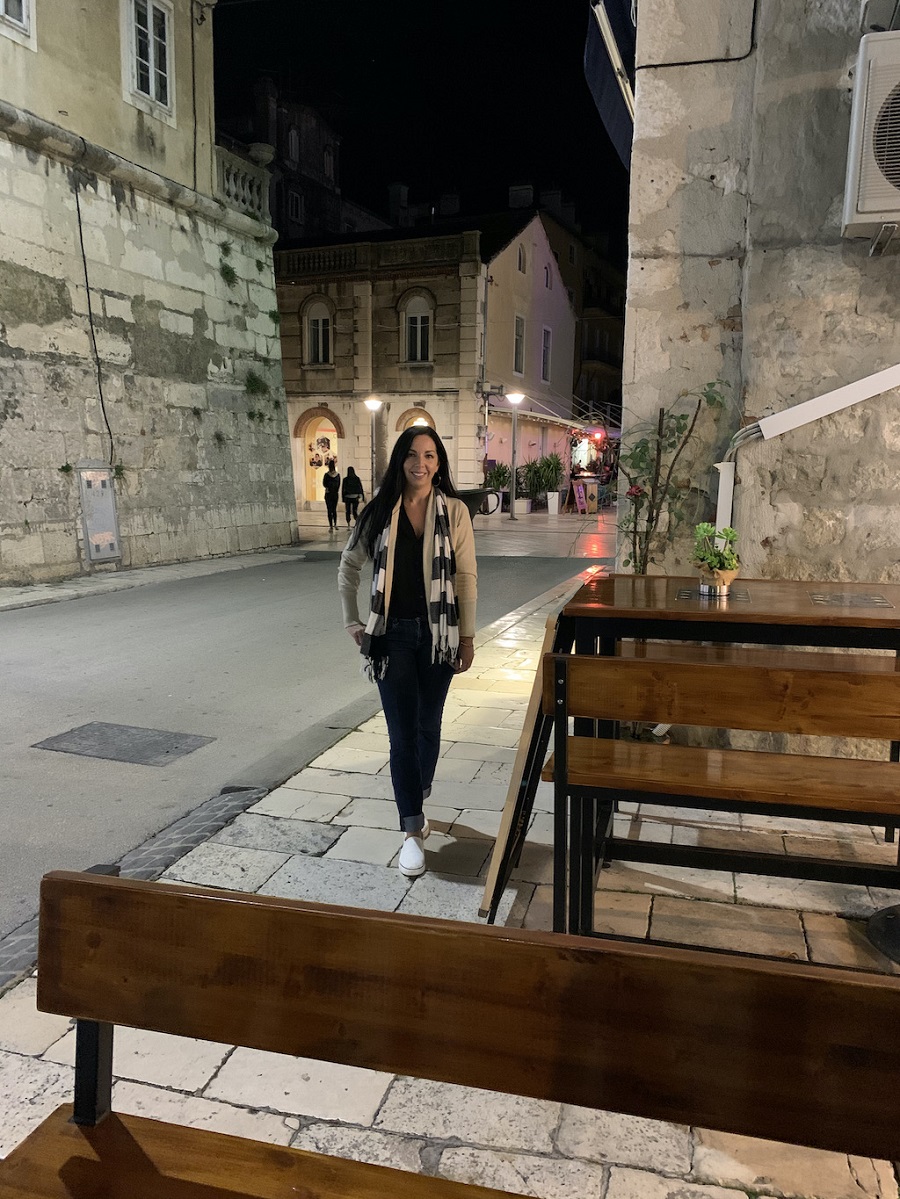
Before you start your journey as a digital nomad see if you can lower your expenses. Would you believe that we’re actually saving money while travelling the world (without giving up the lifestyle that we’re accustomed to)? The reality is that this lifestyle is allowing us to travel the world while saving money that we can then use for fun adventures. Before becoming digital nomads, we typically would go on one or two week-long vacations each year because that’s all we could afford. We realized that there is a lot more to see in the world and at that rate it was going to take us many years to see it all. And honestly, how much can you even learn about a place when you’re only there for a week? So how did we actually lower our expenses? We hired a property manager and he got our house in Tampa rented. We were able to rent it for more than our mortgage (which actually puts some extra money in our pocket each month). With our house rented that means we no longer have any utility expenses (water, electric and internet; it’s all paid for by our tenant)... which saves us hundreds of dollars each month.
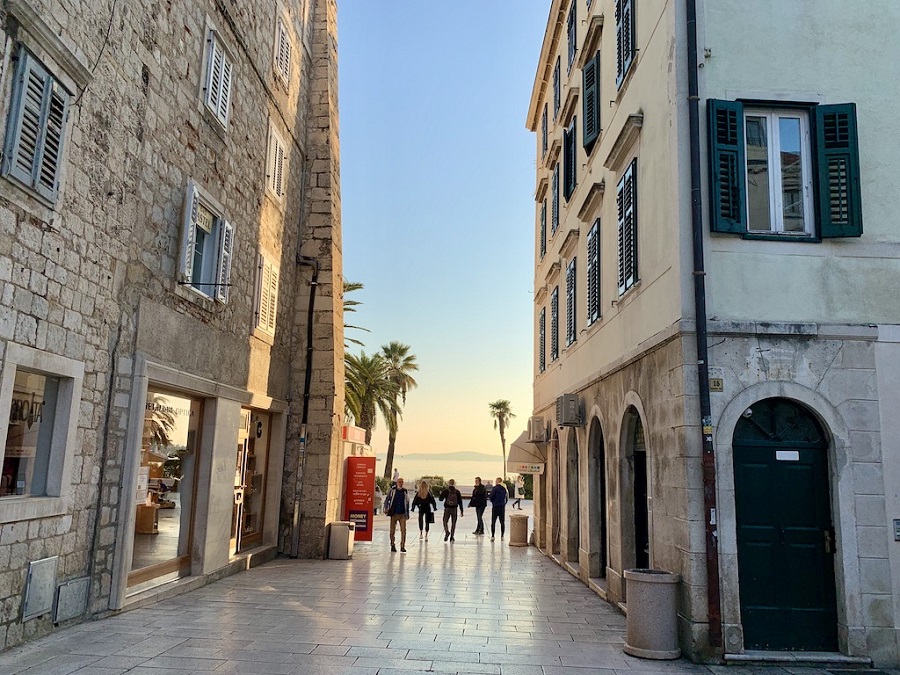
Since we knew we were going to be travelling long term, we sold our car which means no more car payment or car insurance, saving us even more money.
These are just some of the ways that we were able to cut down our expenses. Obviously everyone’s personal financial situation is different, but the reality is there are lots of ways to cut down on your expenses, all while getting to explore new places around the world. Change Your Schedule
Create a work schedule that revolves around meeting a deadline. This allows for more flexible days. For example, instead of having to be at your laptop at a certain time every day to complete your work, change your arrangement to get the work completed by a certain date. This is how our business operates. When we get a project, we tell the client what day we will have it completed. Not only does this type of business model give you flexibility to create your own schedule, but it is very helpful when you are in a vastly different timezone than the people you are working with. Most of our clients are located in the East Coast of the United States and Split is six hours ahead of that time zone, so if we had to be available to work at the normal business hours of our clients, the time zone difference would make it very challenging. If you’re an employee of a company that requires you to do your work / be available on a specific schedule, working remotely from a different time zone can be challenging, but not impossible. If that’s the case, we recommend that you be mindful of the timezone when you’re selecting a destination and find a place that compliments your work schedule.
Try To Make Yourself Smile
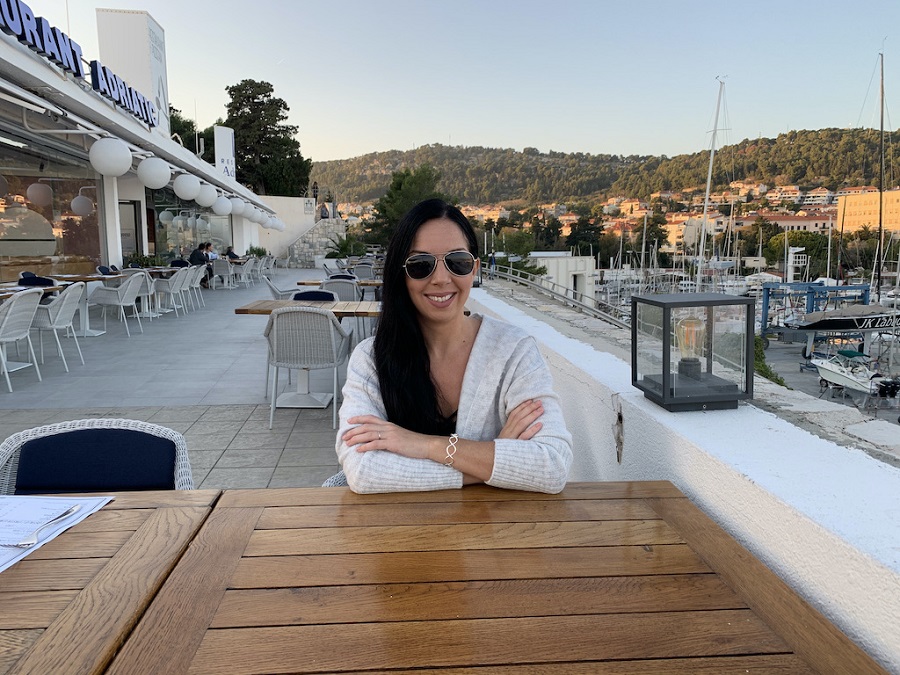
If you’re even a little bit interested in this type of lifestyle, do it! Give it a try on a short term basis and see if it works for you, there is no rule that says you have to do it forever.
Even if it isn’t feasible for you to work remotely with your current job, remember there has never been a greater opportunity or demand for remote work then there is right now. You may be surprised at the remote work opportunities that are available.
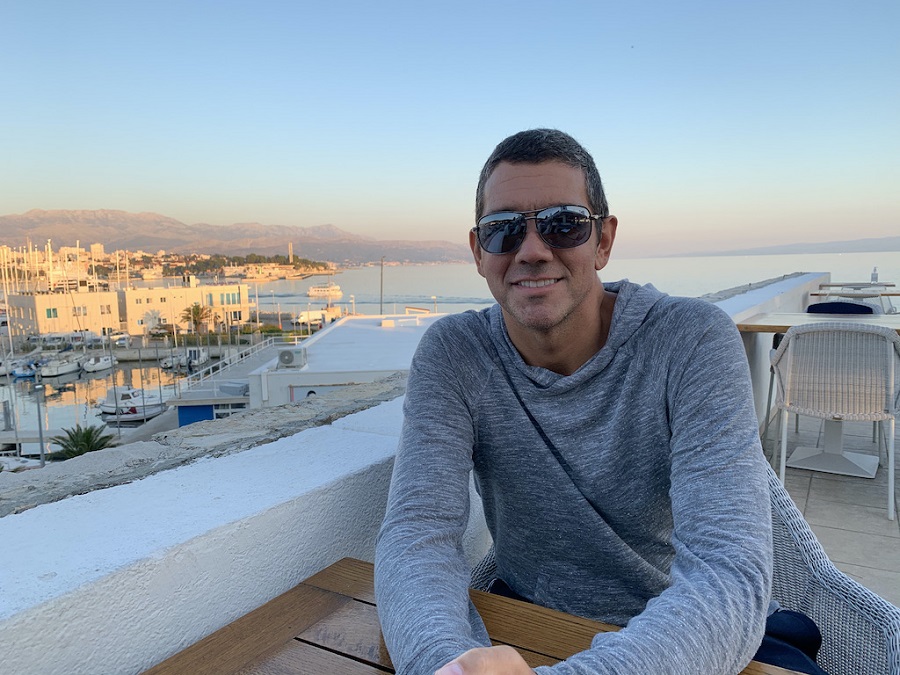
Here is some final advice on making this decision (actually any decision): do the thing that will make your 90-year-old self look back and smile. Most people tend to look back in life and regret the things that they did not do, rather than the things that they did do.
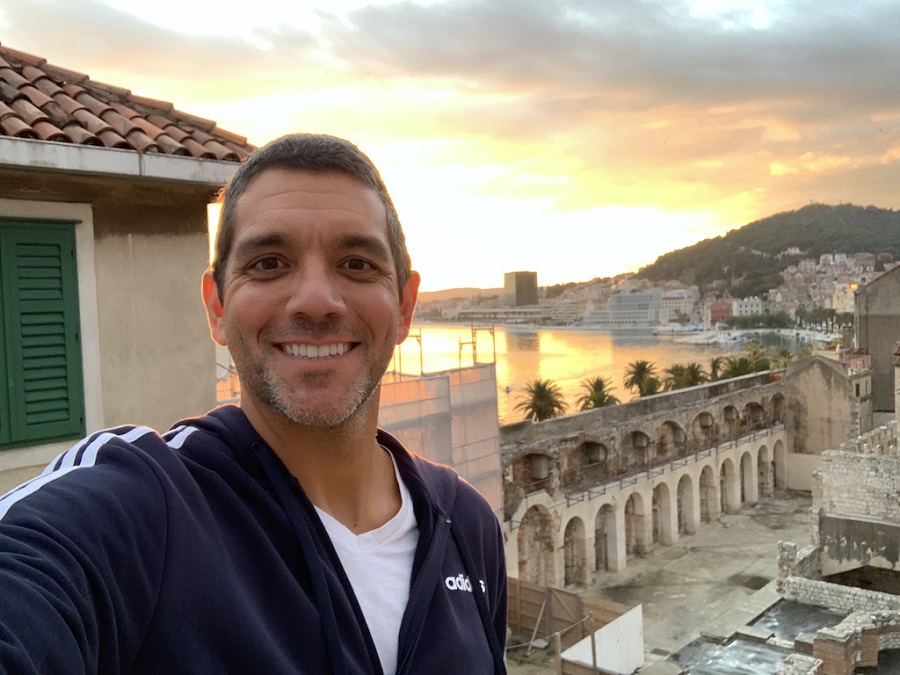
Follow these digital nomads on Instagram:
Amy Anderson https://www.instagram.com/unleashingamy/
Ian Anderson https://www.instagram.com/ianrobertanderson/
Are you a digital nomad in Croatia who would like to be featured in this series? Please contact us on This email address is being protected from spambots. You need JavaScript enabled to view it. Subject Nomad
Read more: Meet Melissa Paul, Owner of Croatia's First Digital Nomad Visa.


